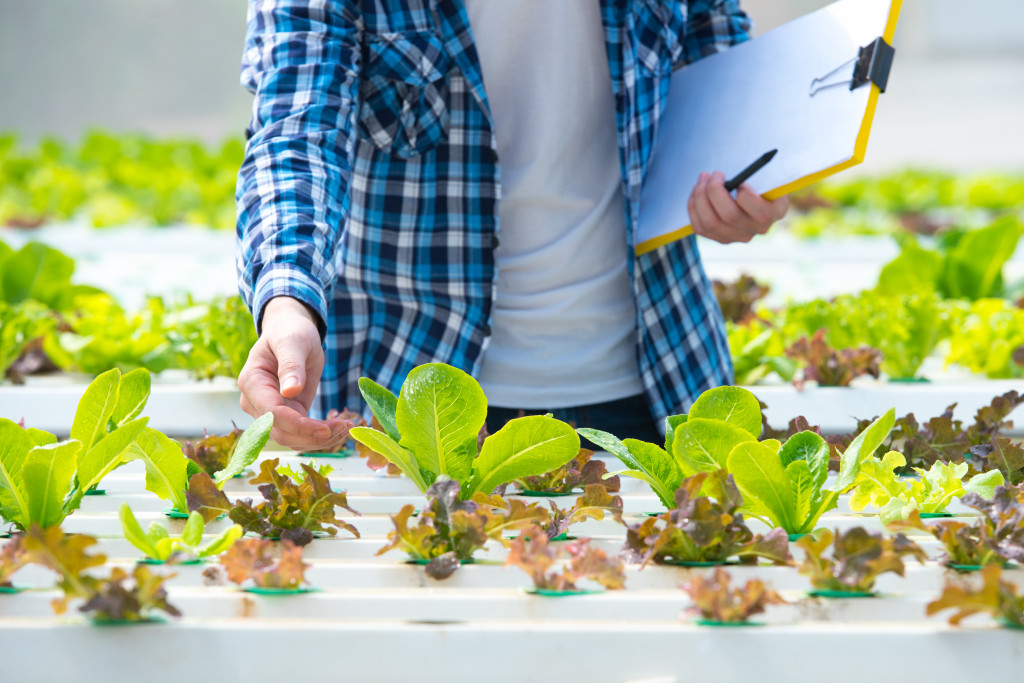The concept of farm-to-table has been increasing in popularity in recent years because of the public’s growing interest in knowing exactly where their food comes from.
Nowadays, because more people are aware of harmful practices in agriculture, including the use of pesticides, hormones, and genetically modified organisms (GMOs), an increasing number of people are demanding locally grown organic produce. People want to know that their food was not only grown sustainably but was also harvested when ripe so it tastes its best.
There is no doubt that having your own vegetable garden will benefit your restaurant.
A vegetable garden is a great way to provide your restaurant with fresh, organic produce. Not only will you save money on groceries, but you will also be able to serve your customers healthy, delicious meals.
Maintaining a Healthy and Thriving Vegetable Garden
When it comes to maintaining a vegetable garden, there are a few key things to keep in mind.
First, make sure to water your plants regularly, especially during hot weather. Many people use a sprinkler system for this, but you can also water your plants by hand.
Be sure to fertilize regularly because vegetables need plenty of nutrients in order to grow and produce fruit or seeds. If you are growing flowers in your garden then use a fertilizer that specifically says it is for flowers.
Third, cultivate healthy soil by adding organic material such as composted manure, which feeds the microbes in the soil. Better yet, use the food scraps generated by your own restaurant and turn them into compost that will feed the vegetables you grow.
Pest and Weed Management
There are a number of common insects and pests that can attack your vegetable plants such as aphids, cabbageworms, cucumber beetles, and Japanese beetles. Some of these pests will only attack certain plants so it helps to know what you are up against before making a trip to the garden center for pesticides.
One important aspect of pest management is prevention. You can keep pests away by covering your garden with floating row covers or screening off part of it to keep them from getting in.
Weeds are also a common problem for vegetable gardeners, especially if you are growing your vegetables in rows or blocks instead of using companion planting which is more effective. Weeds can also take away valuable nutrients and water from your plants so it is important to maintain a few minutes a day of weeding each day. There are several ways to manage weed problems including mulching, hand-pulling, and flame weeding.
Planting Strategies

The best way to ensure a healthy vegetable garden is to choose the right plants for your climate and take into consideration when they will mature. For instance, you shouldn’t plant tomatoes in your northern climate unless you live in a very warm area since it won’t be warm enough for them to grow well.
Harvesting Tips
Make sure that you are harvesting at the right time of day because many vegetables are most flavorful when harvested early in the morning after the dew has dried but before it is too hot outside. For instance, celery gets stringy when it is hot so it should be harvested early in the morning after watering your garden so that its stalks have moisture inside them.
What to do with Your Harvest
When it comes to eating your harvest, you should encourage guests in your restaurant to eat the rainbow. This means that they should try to incorporate many types of vegetables into their diet. For example, if someone has never tried beets before then you could cook up some beets and puree them to make a beet soup or put them on top of a salad.
You can also add a stream of revenue for your restaurant by selling fresh produce or turning your harvest into preserves and baked goods. You can offer these products to diners or sell them online to potential customers who can’t go to your restaurant.
If you have a large crop of vegetables to deal with and you want to give back to your community, consider working with local shelters or food banks that can put your extra produce to good use and make some money for your restaurant as well. After all, nothing should go to waste! This will also give the restaurant a boost in positive publicity.
When you cultivate a vegetable garden for your restaurant, you will provide your customers with the freshest, finest ingredients possible as well as save yourself some money on groceries.

